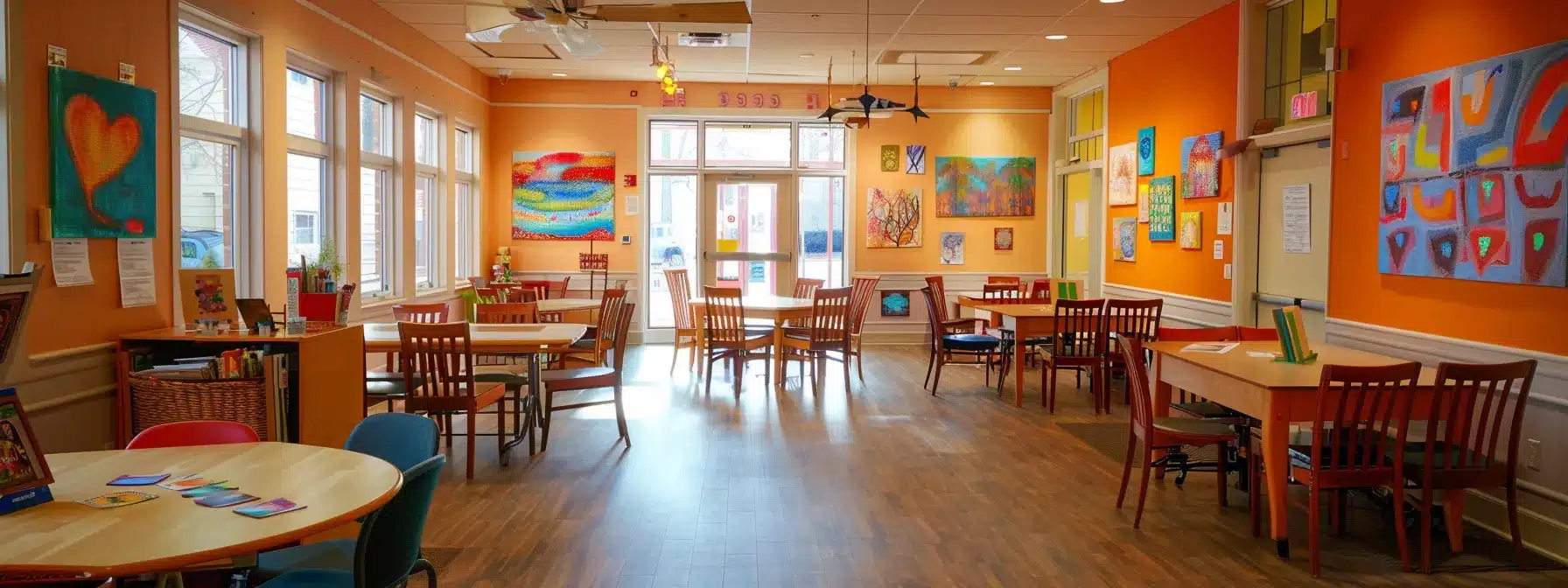Navigate memory care Delray FL with our guide. Discover costs, quality, specialized programs & ensure safe, compassionate support.

Day Programs: A Guide to Supporting Dementia Patients
Table Of Contents:
- Understanding the Benefits of Day Programs for Dementia Patients
- Key Takeaways
- Understanding the Advantages of Day Programs for Dementia Patients
- Enhancing Social Interaction and Engagement
- Providing Structure and Routine
- Supporting Caregivers Through Respite Services
- Accessing Therapeutic Activities
- Improving Overall Well-Being
- Evaluating Different Types of Day Programs
- Real Life Success Stories From Day Programs
- How to Find the Right Day Program for Your Loved One
- Frequently Asked Questions
- Conclusion
Understanding the Benefits of Day Programs for Dementia Patients
Are day programs for dementia patients truly beneficial? This post clearly explains the advantages of day programs, such as enhancing social interaction, providing structured routines, and offering relief for caregivers. It directly addresses concerns around loneliness and caregiver stress while outlining how these programs improve overall well-being. Readers will gain practical insights that help solve everyday challenges in dementia care.
Key Takeaways
- day programs support social connections and structured dementia care
- routines improve mood and ease caregiver stress
- engaging activities boost cognitive function and social interaction
- accessible programs enhance participation and overall well-being
- specialized care teams deliver personalized memory care
Understanding the Advantages of Day Programs for Dementia Patients
Day programs provide a structured routine that supports dementia care and alzheimers care. Adult day services offer a safe environment where individuals receive focused attention. These programs help caregivers manage their daily challenges.
Day care centers allow individuals with dementia to engage in enjoyable activities. This setting fosters social connections and builds confidence in routine tasks while easing caregiver stress. Programs at a jewish home create a nurturing atmosphere for everyone involved.
Programs designed for dementia care provide routines that can improve behavior and mood. Adult day services ensure that each participant gains personalized attention. This approach reduces caregiver strain and supports overall wellness.
Day programs act as a reliable resource to maintain social engagement and daily structure. Inclusion in these programs encourages individuals to stay active, which aids in managing dementia symptoms. Support from specialized day care centers benefits both individuals and their caregiver team.
These programs give structure and foster engagement. They pave the way for rich social ties that brighten each day.
Enhancing Social Interaction and Engagement

This section highlights the value of building connections with peers, engaging in group activities, and maintaining communication skills. The programs offer respite care and integrate physical therapy assistance, supporting proper medication routines. Focus on these practical approaches helps manage disease symptoms effectively while boosting confidence and fostering essential social links among participants.
Building Connections With Peers
The adult day program at Memory Lane Assisted Living in Staten Island offers practical benefits by building connections among peers through organized interactive sessions. This setting allows participants to share experiences, receive nursing support, and enjoy structured engagement as part of the broader adult day health approach:
Members of the program experience improved well-being and find comfort in regular social communication, which helps manage the symptoms of dementia with routine and consistency. memorylanehome.com provides additional resources that demonstrate how adult day health services in Staten Island bring lasting positive impacts to all involved.
Participating in Group Activities
Participating in group activities at an adult day center provides a structured environment for individuals living with memory challenges, allowing them to engage in meaningful tasks. This setting supports social connections, empowering participants through tailored activities and offering practical benefits for those navigating life in New York City and The Bronx while considering Medicaid options.
The program offers a balanced mix of activities designed to improve communication skills and physical well-being, which helps reduce feelings of isolation. The approach, grounded in practical care, benefits families by providing a supportive atmosphere for individuals with memory issues and fosters a community spirit in The Bronx and across New York City.
Maintaining Communication Skills
Maintaining communication skills remains a core focus in this adult day program, where residents enjoy socialization through regular interaction with peers and staff. The day centers promote gentle problem solving by engaging participants in structured conversations that build clarity and confidence in everyday exchanges.
The program fosters a supportive environment where routine dialogue serves as a vital tool for enhancing socialization. Professionals at these day centers provide practical guidance, ensuring each participant benefits from improved communication skills that aid in managing dementia challenges.
Residents enjoy sharing moments that bring warmth and a feeling of belonging. A steady routine follows close behind, offering a familiar path that calms and reassures.
Providing Structure and Routine
Daily schedules encourage consistency for each patient, while predictable environments in adult day programs, nursing homes, and adult day care settings support well-being. Music therapy and structured routines contribute to improved mood and engagement, paving the way for further discussion on daily plans and their impact in promoting focused care for individuals with memory challenges.
Daily Schedules That Encourage Consistency
Structured daily schedules provide a clear framework that supports the social model of care and reinforces consistency in memory care services. Adult day centers incorporate set meal times, exercise sessions, and social activities that help solidify these routines for individuals with memory challenges:
- Fixed breakfast, lunch, and dinner times
- Planned group activities and interactive sessions
- Regular memory care exercises and discussions
Consistent routines at adult day centers build a predictable environment that promotes security and mental clarity, ensuring that every meal and activity contributes to overall well-being. This approach directly addresses caregiver concerns by clearly outlining daily expectations and supporting comprehensive memory care services.
Importance of Predictable Environments
Memory Lane Assisted Living demonstrates that predictable environments significantly boost the overall experience of dementia patients by creating a sense of safety and consistency in health care routines. Routine scheduling, clear expectations, and a stable atmosphere contribute directly to improved mental clarity and comfort for each participant.
Stable surroundings enable dementia patients to participate effectively in planned activities and structured health care sessions while easing caregiver concerns. Practical implementation of regular schedules at day programs proves essential in minimizing confusion and promoting positive behavior throughout the day.
The daily routine steadies hearts and minds. Caregivers now find moments to rest and renew their strength.
Supporting Caregivers Through Respite Services
The day program supports caregivers by reducing stress and allowing time for personal needs. This approach offers relief and gives caregivers space to recharge, ensuring all aspects of care are well managed. The following sections provide practical insights on how structured respite services and clear daily routines benefit both caregivers and patients.
Reducing Caregiver Stress
Memory Lane Assisted Living offers expert respite services that lessen daily tensions for caregivers by providing a dependable, caring environment for dementia patients. The program‘s structured activities and personalized care allow caregivers to take needed breaks while ensuring their loved ones receive close attention and specialized support in a secure setting.
The clear routines and focused care at Memory Lane Assisted Living help relieve caregiver concerns by maintaining continuous, quality care for individuals with memory challenges. This practical approach empowers caregivers to manage their responsibilities with confidence, knowing that professional support is always available to address immediate needs.
Allowing Time for Personal Needs
Supporting caregivers through respite services enables them to have time for personal needs. This opportunity provides a break from daily routines and allows them to attend to tasks that enhance their own well-being and productivity:
By prioritizing self-care, the program assists caregiving teams in managing stress while delivering quality care. The structured respite services offer a reliable solution, giving caregivers a chance to recharge and improve their overall balance between responsibilities and personal needs.
Caregivers find relief and strength in brief respites, allowing them to recharge. Soon, paths open to simple activities that warm the heart and soothe the mind.
Accessing Therapeutic Activities
Day programs offer cognitive stimulation through games, physical exercise opportunities, and creative expression through arts and crafts. Each activity type promotes mental clarity, physical wellness, and artistic engagement, providing a balanced approach to managing dementia symptoms in a supportive environment.
Cognitive Stimulation Through Games
The program at Memory Lane Assisted Living uses engaging games as part of its therapeutic activities to promote cognitive stimulation in dementia patients. These carefully designed activities improve memory, concentration, and problem-solving abilities, providing practical benefits that support daily cognitive function and relieve common symptoms associated with dementia care.
By incorporating interactive games into daily routines, the day programs create an opportunity for individuals to enjoy structured cognitive stimulation that supports overall mental clarity. Professionals at the facility monitor progress and adjust activities to meet each patient’s needs, ensuring that dementia care remains both supportive and effective.
Physical Exercise Opportunities
Physical exercise opportunities provided at Memory Lane Assisted Living offer structured movements that help manage memory challenges effectively. These sessions allow participants to build strength and improve coordination in a safe environment, supporting both physical well-being and mental clarity.
The daily exercise routines foster improved balance and flexibility in individuals dealing with dementia complications. This focused approach not only benefits patients but also provides practical support to caregivers by ensuring clients receive consistent, engaging fitness activities designed for their specific needs.
Creative Expression Through Arts and Crafts
Memory Lane Assisted Living uses creative expression activities to provide a hands-on approach to therapeutic arts and crafts for dementia patients. This practical method allows patients to engage in fun tasks that help boost mood and sharpen focus while benefiting from the natural process of artistic expression.
Specialized arts sessions offer a structured environment where individuals can work on projects that improve fine motor skills and support cognitive function. The program encourages participation by guiding patients through simple, creative tasks, effectively addressing common challenges related to memory care.
Therapeutic activities sharpen daily focus and build resilience in quiet moments. This clarity sets the stage for steps toward better overall health.
Improving Overall Well-Being
The focus on monitoring health and safety and addressing behavioral challenges offers practical insights that support improved overall well-being for dementia patients. Expert care teams use structured activities to enhance security and calm behavior, ensuring clear benefits from day programs in dementia care. The following sections provide additional details on these essential aspects.
Monitoring Health and Safety
The program maintains strict monitoring protocols to ensure that each patient experiences a safe environment. Care teams use organized assessment methods, professional oversight, and frequent check-ins to track patient behavior and support overall well-being.
Health and safety measures include regular evaluations and real-time interventions to address ongoing needs and potential concerns. This proactive strategy helps caregivers feel more secure, knowing that trusted professionals and tailored plans are in place frequently to safeguard each individual.
Addressing Behavioral Challenges
Memory Lane Assisted Living effectively addresses behavioral challenges by ensuring that each patient follows a carefully designed daily schedule that promotes calmness and consistency. The program uses practical strategies such as monitored activities and individualized care plans to help reduce agitation and improve mood among dementia patients.
Specialized care teams work closely with patients to quickly identify and respond to behavior changes, ensuring a safe and supportive environment. This hands-on approach allows professionals to implement timely interventions, which benefit not only the patients but also provide reassurance to their families.
The care provided here builds strength in every moment. Now the focus shifts to different day programs and how they offer tangible benefits.
Evaluating Different Types of Day Programs
This section provides an overview of various day program models while examining how program approaches differ. It also outlines the essential role of staff training and qualifications in dementia care. The discussion will clearly compare these strategies and explain how professional care teams build and maintain effective care routines for patients and their families.
Comparing Program Approaches
Memory Lane Assisted Living provides a practical example of comparing program models in dementia care. The facility uses a person-centered approach that contrasts with larger settings by offering smaller groups and more focused interactions tailored to each individual’s needs.
The evaluation of day program methods reveals differences in structured routines and personalized support. Practical insights from Memory Lane Assisted Living show that consistent engagement and customized activities can improve well-being and ease caregiver concerns effectively.
Understanding Staff Training and Qualifications
Memory Lane Assisted Living ensures that its staff possess extensive training in dementia care, which supports high-quality day programs for memory care patients. The facility requires caregivers to complete specialized courses and ongoing professional development, allowing them to implement effective, personalized care routines that address each patient‘s unique needs.
Each team member’s qualifications are regularly reviewed to maintain the highest standards in dementia support. This commitment to proficient staffing builds trust with families and ensures that patients benefit from a structured environment designed to improve overall well-being.
Day programs deliver clear benefits that make a difference in daily life. Real life examples now reveal how these positive changes unfold.
Real Life Success Stories From Day Programs
Real life success stories highlight positive impacts on family dynamics and share testimonials from participants and caregivers. These insights reveal how structured day programs improve communication, support well-being, and foster community among dementia patients. The upcoming details offer practical views from those who have experienced these benefits firsthand.
Positive Impacts on Family Dynamics
Memory Lane Assisted Living has shown significant improvements in family relationships by creating a supportive environment that allows relatives to bond more easily. The structured day programs not only help individuals with memory challenges, but they also provide a sense of relief to families who witness improved mood and behavior during program hours.
The positive changes in family dynamics are reflected through shared experiences and increased communication that ease family stress and foster confidence in care management:
Testimonials From Participants and Caregivers
Participants and caregivers have shared their positive experiences with day programs, noting clear improvements in daily engagement and overall well-being. They express satisfaction with the personalized activities and supportive care provided at specialized centers, which help maintain communication and reduce stress associated with dementia management.
Caregivers recognize that the structured routines and attentive support offered by these programs assist in managing daily challenges effectively. Their testimonials highlight how tailored schedules and professional oversight contribute to a stable and caring environment, providing practical benefits for families and individuals alike.
Success stories show how day programs change lives. Now, learn how to choose a program that meets the unique needs of your loved one.
How to Find the Right Day Program for Your Loved One
Selecting a day program requires attention to location and accessibility to ease travel and participation. Assessing individual needs and preferences helps ensure a tailored approach that supports dementia patients effectively. Factors discussed below guide families in finding a program that meets both practical requirements and unique care objectives.
Factors to Consider in Location and Accessibility
Memory Lane Assisted Living emphasizes the significance of choosing a day program that is conveniently located and easy to access. Evaluating factors such as transportation options and proximity to familiar surroundings helps families select a setting that supports both consistent attendance and reduced travel stress.
The facility’s expertise in dementia care suggests that a well-situated program can positively influence patient comfort and engagement. Parents and family members are encouraged to assess accessibility features, including wheelchair-friendly entrances and secure parking, to ensure a safe and welcoming environment for their loved ones.
Identifying Individual Needs and Preferences
Memory Lane Assisted Living recognizes that each dementiapatient has unique requirements that need careful evaluation. The facility emphasizes the importance of identifying specific care needs and personal interests during assessments to guide the selection of a day program that truly supports the individual’s well-being and daily structure.
Experts at Memory Lane Assisted Living advise families to consider the habits and preferences of their loved ones when choosing a suitable program. This practical approach ensures that the chosen day program aligns closely with the patient‘s lifestyle and provides dependable support for both cognitive stimulation and overall emotional comfort.
Frequently Asked Questions
What benefits do day programs offer dementia patients?
Day programs provide dementia patients with tailored activities, fostering social connections and mental engagement in a supportive setting that prioritizes person-centered care and individualized attention.
How do day programs improve social interaction?
Memory Lane Assisted Living day programs offer space for social connection through group activities, shared meals, and specialized care. These sessions foster camaraderie and reduce isolation among individuals experiencing dementia or Alzheimer’s symptoms.
How does a daily schedule support dementia care?
A structured daily schedule at Memory Lane Assisted Living fosters consistency, reduces anxiety, and supports memory function for residents with dementia by ensuring personalized routines and organized activities in a familiar, small residential setting.
What options provide caregivers with a break?
Memory Lane Assisted Living offers respite care options for caregivers, including professional short-term placements and tailored memory care services that provide necessary breaks while ensuring loved ones receive specialized attention.
How can families choose the right day program?
Families should assess options offering personalized care, a safe home-like setting, and specialized dementia support. Evaluating staff expertise and environment quality in local facilities like those in Ypsilanti and the greater Ann Arbor area can guide the decision.
Conclusion
Day programs offer a structured routine that improves the overall well-being of individuals facing memory challenges. They create a secure environment where personalized care and engaging activities ease stress for both patients and caregivers. Consistent schedules and interactive activities significantly support mental clarity and social connections. Families gain practical insights that empower them to choose care solutions that match their loved ones’ unique needs.


